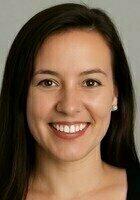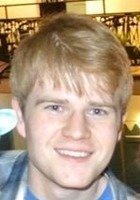Connect with hundreds of tutors like Kevin
Who needs tutoring?
FEATURED BY
TUTORS FROM
- YaleUniversity
- PrincetonUniversity
- StanfordUniversity
- CornellUniversity

Kevin
About Me
Hi! My name is Kevin Joyce, and as someone who is well versed in standardized tests and rigorous course loads and who has taught others in the past, I believe I make the prime candidate for helping you get where you want to be when it comes to your SAT score. I took the SAT twice, my highest single score being 2310 (800 Writing, 800 Verbal, 710 Math), and my "superscore" being 2330 (800 Writing, 800 Verbal, 730 Math). I am a graduate of Johns Hopkins University, where I received a BA with a double major in Film and Media Studies and Writing, earning a 3.72 GPA. While in school, I consulted with friends numerous times on their assignments and gained an understanding of what it takes to distill complex concepts into easily comprehensible pieces. So now you've read my academic SparkNotes. As for my philosophy on standardized test-taking and teaching, I've always relished the challenge of standardized testing, to be honest. I think engendering that same sentiment in future test-takers can be key. As for my love of tutoring, I feel that teaching others to solve certain problems is in many ways more gratifying than coming up with a correct answer to a problem yourself. In a similar vein, while it may be clich (though just because something is said a lot doesn't mean it's trite), helping others come to understand a point of view they didn't hold before or aiding them in the development of a new skill is an incredibly satisfying experience. My hobbies and loves include watching sports (especially the NFL), playing sports (football, lacrosse, rugby, soccer, ultimate and running track are my favorites), watching movies, reading, and writing.
Education & Certifications
Test Scores
Perfect ScoreQ&A with Kevin
Connect with a tutor like Kevin
Connect with a tutor like Kevin
Tutors with Similar Experience



